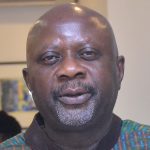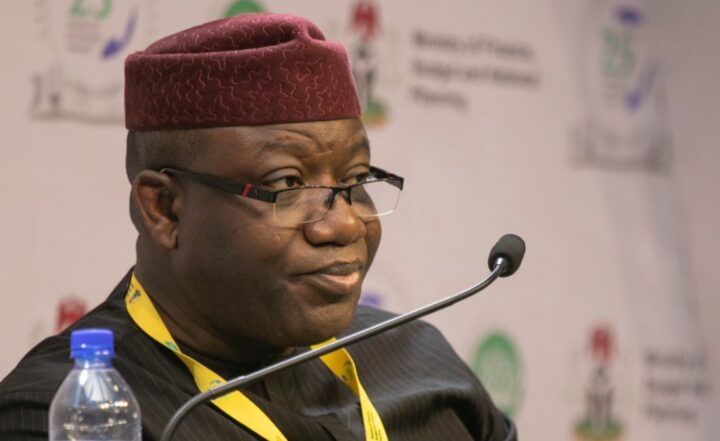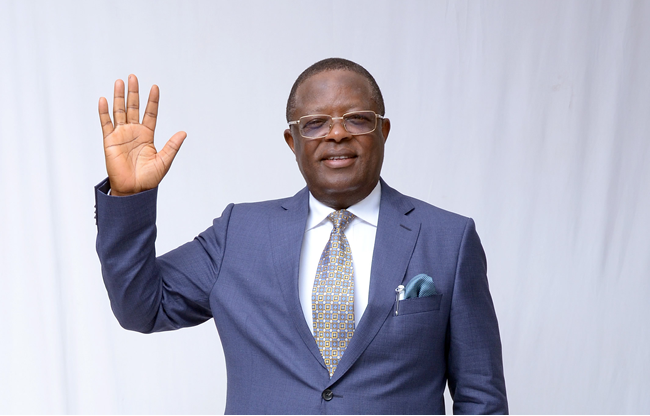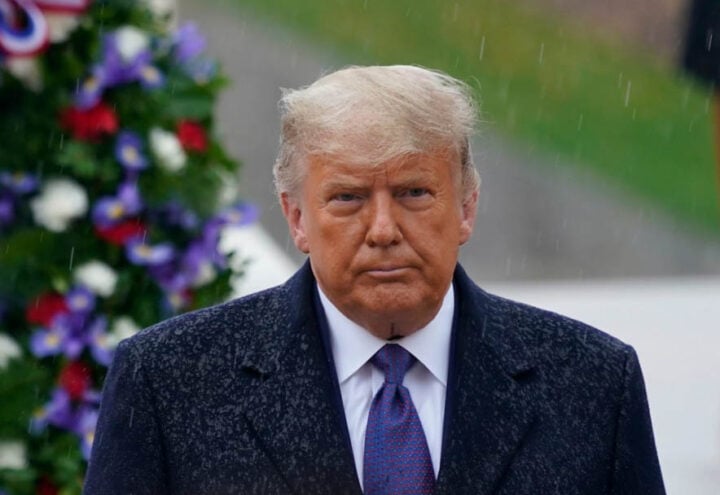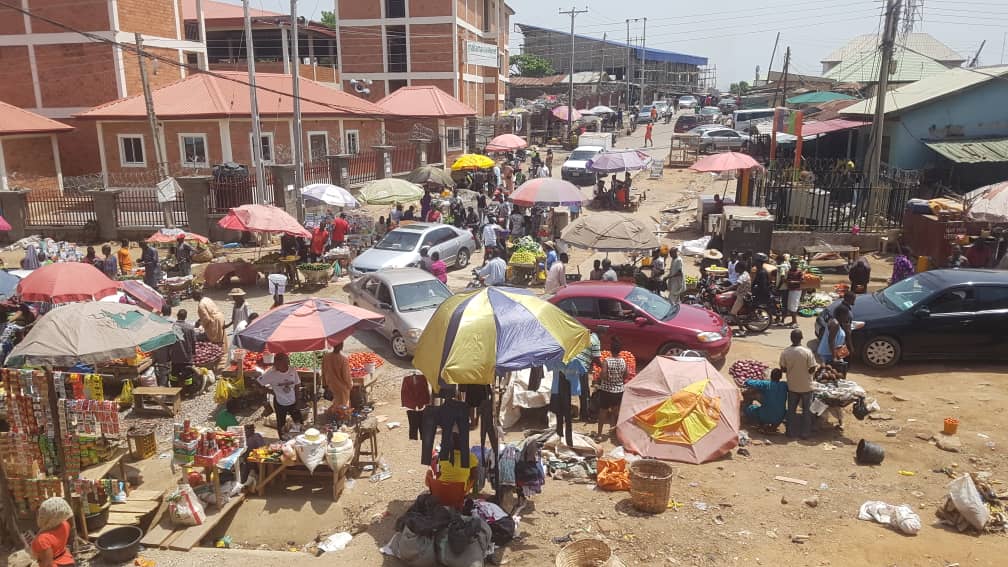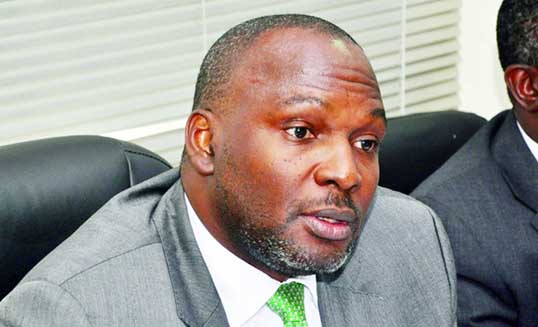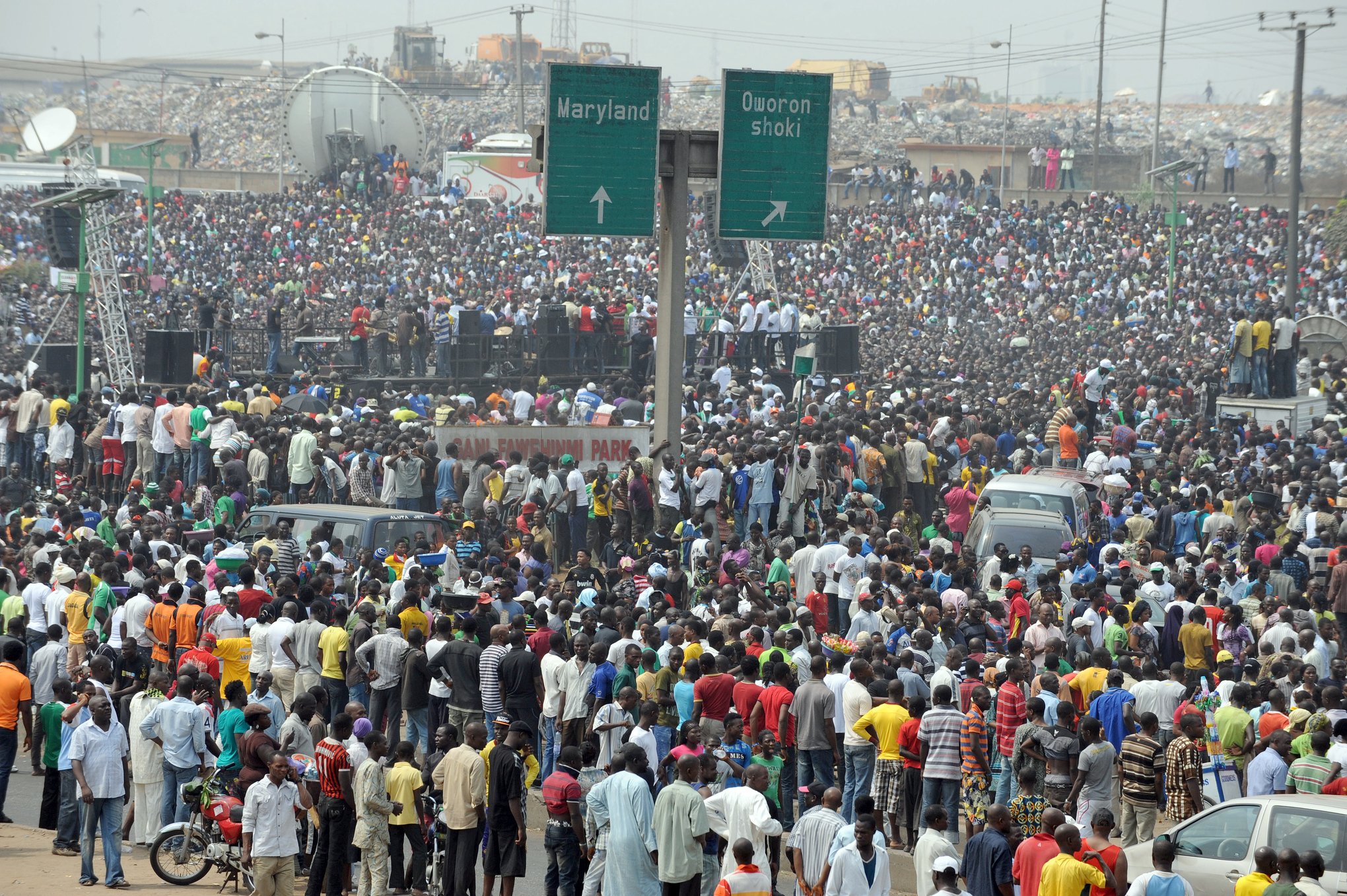Kayode Fayemi
On Saturday, October 31, 2020, the governor of Ekiti State and Chairman, Nigeria Governor’s Forum (NGF) Dr. John Kayode Fayemi delivered a speech in Kaduna on the occasion of the 50th Anniversary of the Centre for Historical Documentation and Research, otherwise known as “Arewa House.” This speech was titled “UNFINISHED GREATNESS: Towards a more perfect union in Nigeria.” After delivering such a compelling and deeply thought provoking speech, one would have expected further interrogation from the country’s intelligentsia and the Fourth Estate either to deepen the discourse or to take it apart for further questions to emerge, if not for more clarity on some of the author’s thoughts.
The interrogation also should have been inevitable by the sheer fact that the author, by dint of hard work and the power of his own conviction, who has always been found at the intersection of the nation’s critical political discourses as well as its challenges, unarguably now represents the moral and intellectual conscience of the nation. But the interrogation have been few and far between. While the title, in itself, was enough to raise eyebrows because of the paradox, if not the contradiction in terms that is inherent in it as “greatness,” let alone the one that is yet to be finished, for all intents and purposes, can only happen after the fact to be thus described, one should also hasten to mention that the intendment of the word is understood. It is just that Nigeria’s “unfinished greatness” is either yet to take off or on permanent suspended animation. But this is just by the wayside.
Dr. Fayemi’s “Arewa House” speech, as aforementioned, was so compelling and deeply thought provoking that it has thrown up a multiplicity of reasons why it should be discussed, one of which is none other than the man’s essence and his hard-to-ignore interventions in the country’s politics that this writer has since characterized as the “Fayemi Question”—-for he is himself a ‘question’ among the political class in particular and the nation’s body politic in general. The importance of this interrogation is even more compelling when the “Fayemi Question” is juxtaposed with the perennial and elusive “National Question” which the author treated with much lucidity and frankness in his speech that it would be a disservice not only to the speech but the author were they to not have been subjected to some stress test.
Aside the content analysis of the speech—-as we shall see presently—-Dr. Fayemi may have inadvertently outed himself as an embodiment of rugged intellectualism mixed with a significant dose of political activism—although now less threatening to the nation’s old guard political establishment—–as praxis in engaging governance architecture and public discourse that should ordinarily necessitate an interrogation. The home truths that are contained in the speech has, once again, brought into the fore the author’s ideational predilection (and, again, what has since been identified by this writer) of the author as an embodiment of an emerging “New Left” of Nigeria’s “leftist” ideological spectrum whose characteristics, among others, is their readiness and without any inhibition, to speak blunt truths to power even when they are themselves members of the same power establishment of which the public warily looks at, if not dismissive of.
Advertisement
It is also imperative to look at Dr. Fayemi’s speech from the fact that it was not only ‘manufactured’ for, directed at, and delivered to that epicenter of political power in a geo-political region that not a few believe have been very notorious, having contributed in no small measure to a diseased, bedridden, if not comatose polity by its recalcitrance, outdated, one-size-fits-all conservative ideological bent at the detriment of the rest of the country.
But more importantly, the fact that Dr. Fayemi seems to have portrayed Sir Ahmadu Ibrahim Bello, the Sardauna of Sokoto, Nigeria’s first and only premier in his speech as, at best, liberally conservative (perhaps an oxymoron) despite being the architect of Hausa/Fulani exceptionalism when there was (and still is) no basis for that train of thought deserves an interrogation.
While the formidability of Dr. Fayemi’s speech is never in doubt as it touches on those critical contours of the “National Question” that the elite seems unwilling, let alone having the courage to confront frontally, including those aspects that has always discomfited the members of the geo-political region in which he was their August visitor, it may be difficult to holistically address the several fundamentals of the speech for obvious reasons. But try one must!
Advertisement
While it is quite apposite for Dr. Fayemi to have reminded us of the bipodal “deliberate intentions” for which “Arewa House” as an institution was founded which, he said, is the immortalisation of “the legacies of the great political leader and former Premier of the defunct Northern Nigeria, Sir Ahmadu Bello” and also “to serve as a bastion of the collective memory of the people of Northern Nigeria in particular, and Nigeria at large,” one is perhaps hard-pressed not to think that there may be more reasons than he advertised. A Centre of Historical Documentation and Research like “Arewa House” must necessarily engage in policy formulation (at least for its sphere of influence) if it must live up to its billing. From the foregoing, therefore, it is probably safe to include the propagation of conservative political ideology that the north has, and continues to unabashedly identified with as one of the unstated reasons for its existence. Thus, the ‘deliberate intentions” for which “Arewa House” was founded is at least tripodal. This ‘third leg’ argument for the existence of “Arewa House” can even be advanced further by laying claim (although without any empirical evidence) to the supposition that this institution may well be the one that beats the drum to which northern organizational entities such as the ubiquitous Arewa Consultative Forum (ICF) and Miyetti Allah Kautal Hore most times dance recklessly and provocatively to by their responses to issues of national importance that their counterparts in other regions are often dejected and pensive about, thereby making them to wonder if they might be taking something that sets them on high octane.
The late Sardauna of Sokoto, Sir Ahmadu Bello (and to a greater extent Shehu Usumanu Dan Fodiyo) suddenly became dead men of interest (at least to this writer) with the way Dr. Fayemi advertised some of their public pronouncements which are patently progressive, most especially in relation to the Sardauna’s views on religion, culture, ethnicity and work. Of particular importance, however, is what the author said about Dan Fodiyo that, in his book Bayan Wujub al-Hijra where he noted that “one of the swiftest ways of destroying a State is to give preference to one particular tribe over another or to show favour to one group of people rather than another.” Unfortunately, the opposite of this counsel is what the rest of the nation has been witnessing since the end of the civil war. If Ahmadu Bello and Dan Fodiyo’s thought patterns (two greatest men that ever emerged from the northern geo-political region) about how a nation should be in order to achieve greatness sounds like Awo speaks, one cannot but wonder why they’re increasingly conservative (even for their own good, not to talk of their inordinate attempts to lord this neanderthilic political concept on the rest of the polity) when it was the water from the well these men dug—-as their progenitors—-that they’re still drinking? Has the water in this well been poisoned? Or is the north holding on to conservatism (hopelessly) because it has been, and still is, proof positive instrument of control?
Dr. Fayemi may have attempted to proffer some answers to the “National Question” in Kaduna, starting with his use of what he called a “grand metaphor” in describing the seemingly hopeless Nigerian condition as depicted in Ben Okri’s award winning book, “The Famished Road” about “a people who, for several generations have been trying to build a road. But no matter how hard they work, they never go far in their endeavour. Even then, whatever little progress they make, is always destroyed by disasters beyond their comprehension and they would have to start all over.” Although, Dr. Fayemi would rather see “our own efforts at nation-building” in terms of building “an infinite wall of greatness” as opposed to Okri’s perpetually “collapsing road,” the question one should perhaps ask is whether or not any serious, genuine and true attempts has ever been made to build either a road or wall before we can even begin to interrogate the nation’s “unfinished greatness.” The author also advanced his concept of nation-building with the assertion of the late Professor Claude Ake that “development was never part of the post-colonial African political agenda” as well as the Noble Laureate, Wole Soyinka’s question about “When is a Nation?” There’s also a significant segment in the society with the school of thought that Nigeria is not, and has never been a nation. It then goes without saying that if Nigeria is not a nation, the issue of fairness, equity and justice, which are some of the fundamental building blocks of a nation must necessarily be the first set of line items of the national questions before anything else. One wonders, therefore, if there should not be an addition to Wole Soyinka’s “When is a nation” which is: What is a nation?
While it can be said that Dr. Fayemi has pointed us to the direction we ought to follow in finding the greatness that has eluded us since the end of the First Republic, most specifically his lucid and unambiguous treatment of restructuring, devolution, fiscal federalism, which are central to the national question and which, it must be stressed here, are the 900-pound (each weighing 300-pound) gorillas that majority of his audience are probably still scared stiff, perhaps the most perplexing of this interrogation is how to situate his position on the Nigerian constitution vis-a-vis his concept of development and how the latter should be managed and the shape and form it should take. Although one is relieved that Dr. Fayemi discounted the 1999 constitution as that rule book that was “hurriedly put together by the departing military authority [perhaps in Kano] and was not a product of sufficient inclusiveness.” It should also be emphasized that the constitution was so badly written that one could surmise that it has been rigged (if not deliberately) against development as we know it which the author rightly feels so passionate about. If this is the case, the question should be asked: Which comes first; the constitution or development? Since development cannot take place without a well thought out plan (and the plan in this case is the constitution) one is therefore of the opinion that the present ‘plan’ should be thrown out and replaced with a new plan that will have “sufficient inclusiveness.” The constitution is the foundation of development in all its facets. So, if the constitution is largely considered a nullity by the way and manner it was ‘constructed’, it therefore goes without saying that anything put on it cannot stand. Something cannot stand on nothing—-as the lawyers would say. This constitution, I must respectfully submit, is nothing to write the world about and therefore should be discarded.
Advertisement
Dr. Fayemi’s absolute agreement with the views of Professor Attahiru Jega in our quest towards building a more perfect union especially in relation to restructuring by quoting the former Chairman of Independent National Electoral Commission (INEC) in which the professor said, and Dr. Fayemi repeated, that “sooner than later, these matters have to be addressed squarely but dispassionately. The challenge is how to address the issue of restructuring the Nigerian federal system without upsetting the apple-cart; that is, how to add value to the structure and systemic efficacy of the federal arrangement, without unleashing instability occasioned by the mobilisation of ethnic, regional and religious sentiments and identities.” This was a wise admonition. But the interesting thing to this writer about this wise counsel is the clause that “upsetting the apple-cart” should not be a necessary condition to addressing “the issue of restructuring the Nigerian federal system.” Again, the question is: How do you reconfigure a badly constructed monstrosity such as what we currently have without upsetting the cart where some apples must necessarily fall off so that some that has far less apples can have more from those that has far more than their fair share? This is equity. Methinks this is the crux of the misgiving, if not resistance from those who are largely opposed to restructuring. But this writer will submit that a deliberate (but scrupulously guided) disruption of the present economic and political arrangement may well be what the social engineer ordered. Fact is: You cannot make omelets without breaking the eggs.
There is no doubt that Dr. Fayemi has left us more than enough to ponder on as to what the nation must do in her quest to finding enduring answers to the national question and achieve greatness with what might as well be described as his “Kaduna Declaration” on Saturday, October 31, 2020. He has diligently pressed himself into the service of his fatherland with his leadership quality, soundness of thoughts and the power of his own conviction that his thoughts and actions on issues of national importance cannot be treated with levity. Perhaps these attributes, and the bridge he has successfully built across all ethno-religious and political divides in the polity, may have necessitated his invitation into the clan of the conservatives that he’s now fondly referred to as the ‘adopted son’ of the late Sardauna in whom the North is well pleased.
Femi Odere lives in Iropora-Ekiti. He can be reached at [email protected] or at 0808-339-3127.
Advertisement
Views expressed by contributors are strictly personal and not of TheCable.
Add a comment
